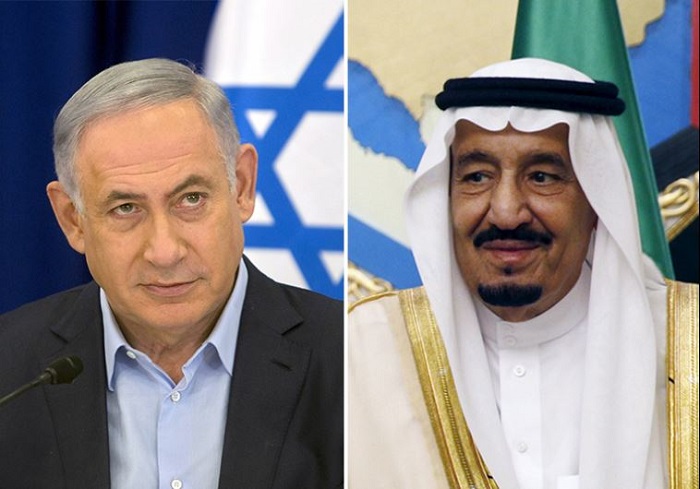Alwaght- When Saudi Arabia failed to draw support of Turkey, Egypt, and Pakistan for its anti-Iranian– and in fact anti-Islamic– military coalition and this gradually led to repulsion of the whole Muslim world in facing this escalatory plan of the Saudi regime, a couple of significant developments took place.
1. The Saudi regime launched plans to press the three big Muslim countries. It was met with failure in implementing its plans, however. In a strategic shift, the government of King Salman put high on its agenda support of the Muslim Brotherhood, and at the same time suspended the financial aids of Saudi Arabia to Egypt. As a result of these measures, executions of some old leaders of the Muslim Brotherhood were suspended, but this did not work for good of the movement’s tragic conditions. Some time later, the Egyptians invited the Saudi king to Cairo, and during a meeting between King Salman and Egyptian President Abdel Fattah el-Sisi, the president in a statement announced that Egypt gave two Red Sea islands of Tiran and Sanafir to Saudi Arabia. In fact, the former general of the Egyptian army in a complicated plan and to remove suspension of the Saudi financial aids to Egypt staged a maneuver. He then revoked his decision after receiving the aid packages of Riyadh using the parliament and the constitutional court. The play displayed idiocy of the kingdom as much as it showed the cleverness of Egypt. The Saudis in this game were double-crossed. On the other side, the Saudi officials did so much to put strains on Pakistan and Turkey. Their last action was backing the anti-Erdogan coup bid in Turkey last month.
2. As the Saudis failed in their other cases, they tried to fuel their political differences with Iran in a bid to use the anti-Iranian capacity of the West to cover up their weakness in the face of Tehran. So, since mid-2015 that Saudi Arabia found itself a loser of battlefields in Yemen, Iraq, and Syria, it intensified anti-Tehran moves. The very latest of them was replacing the Iranian Hajj pilgrims with the members of the Mojahedin-e Khalgh Organization (MKO), a terrorist organization that had hands in many terror operations inside Iran. But the anti-Iranian steps of Riyadh which included trying to build an anti-Tehran Sunni front in the region and going to great lengths to persuade the West to pay more attention to the kingdom were doomed to fail in practice.
The kingdom thought that the antagonism of the West towards Iran was strong enough to push Tehran to the sidelines. But, long times before Al Saud, the West figured out that extreme anti-Iranian move could not yield the needed results, and actually any coalition that rises with anti-Tehran intentions is doomed to collapse. Therefore, although the West and particularly the US backed by diplomacy and media the anti-Iranian steps of Saudi Arabia, they never decided to take practical measures against Tehran.
Meanwhile, the anti-Iranian media propaganda launched by Al Saud despite huge spendings never succeeded in mobilizing the Muslim world against the Islamic Republic.
After finding out that the Saudi Arabian plans in Yemen, Bahrain, and Syria are far from being successful and there are signs indicating that at the end of the road the course of developments would go towards further triumphs of the Axis of Resistance in Syria and Yemen and thus goes as Iran desires, the Western criticism of the Saudi measures quietly started. The European Parliament's statement several weeks ago, the UN Secretary-General Ban Ki-moon's outcries during the past few months, and publishing anti-Saudi articles in prominent Western media all show the new approach of the West towards Riyadh. In fact, the kingdom lost its credibility in the eyes of the West for an array of reasons.
3. Publicizing relations with the Israeli regime is perhaps, according to the Saudi leaders, is the most influential instrument to call attention and overtake current political and security conditions that are inconsistent to Riyadh’s ideals. Everybody knows that the creator of both Al Saud and the Israeli regime is Britain, and basically it is wrong to think that there is a natural difference between the Saudi and Israeli governments or they adopt separate approaches. At the same time, the documents make it clear that in 1920s the ruler of Najd, the only region under the control of Al Saud at that time, in a letter to the British Foreign and Commonwealth Office stated that he in the behalf of the Muslims approved of settling the " ill-fated Jewry" in the Palestinian territories and so he complied with the plans of League of Nations, an international body that preceded the United Nations. However, so far, this harmony between the two regimes was kept hidden to a large extent. The new conditions and failures pushed the Saudi regime to publicize the relations.
So many Western analysts believe that following victory of the Islamic Revolution in Iran, Tel Aviv turned into a center of gravity of the Western presence in West Asia region. However, as the time went by Tel Aviv became weak and so turned into a burden on the West.
Therefore, on the one hand as the Israeli regime's position and potentials declined, the Western position in West Asia was seriously damaged, and on the other hand along with Tel Aviv’s losing credit the West began studying new solutions. In fact, Saudi Arabia wanted to tell the Israeli regime and the West that by forming an Islamic front and implementing different plans it could get the conditions back to pre-Islamic Revolution time.
The outcome of the Israeli-Saudi alliance is that the grim plans of the two regimes became even clearer. Actually, despite Saudi and Israeli plans not only no anti-Iranian front was not formed in the region but also the common opponents of Riyadh and Tel Aviv went even more united and coherent.



























